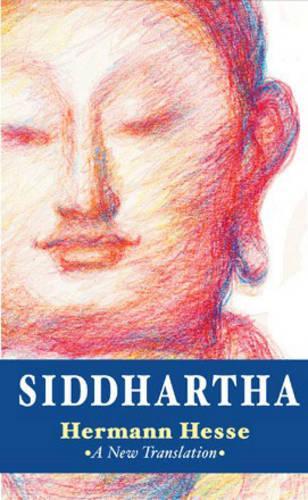
Siddhartha: A New Translation
(Paperback)
Available Formats
Paperback
Published: 1st October 2008
Paperback
Published: 7th August 2008
Hardback
Published: 13th October 2020
Hardback, 2nd New edition
Published: 1st May 2021
Paperback
Published: 7th November 2023
Hardback
Published: 15th July 2020
Paperback
Published: 1st November 2007
Paperback
Published: 3rd November 2000
Paperback
Published: 15th April 2005
Paperback
Published: 31st March 1999
Hardback
Published: 3rd October 2023
Publishing Details
Siddhartha: A New Translation
By (Author) Hermann Hesse
Introduction by Paul W. Morris
Translated by Sherab Chodzin Kohn
Shambhala Publications Inc
Shambhala Publications Inc
15th April 2005
United States
Classifications
General
Fiction
Fiction in translation
813
Physical Properties
Paperback
176
Width 106mm, Height 172mm, Spine 12mm
91g
Description
A classic of twentieth-century fiction, Siddhartha is the story of the spiritual awakening of a man living in India at the time of the Buddha. Born into a wealthy Brahmin family, he leaves his home for the contemplative life, then, restless, discards that life for one of the flesh. He conceives a son, but bored and sickened by lust and greed, moves on again. Near despair, Siddhartha comes to a river where he hears a unique sound. This sound signals the true beginning of his life-the beginning of a new understanding of suffering, a growing sense of peace, and, finally, wisdom.
Reviews
Filled with timeless truths and told sobeautifully with images that burn deep into your being, Hesses novel speaks powerfully to every generation of spiritual seekers . . . A fresh translation of Siddhartha that offers greater authenticity than any other translationwhile still preserving the unique beauty of the original prose.
Branches of Light
Author Bio
Hermann Hesse was born in 1877 in Calw, Germany. He was the son and grandson of Protestant missionaries and was educated in religious schools until the age of thirteen, when he dropped out of school. At age eighteen he moved to Basel, Switzerland, to work as a bookseller and lived in Switzerland for most of his life. His early novels include Peter Camenzind (1904), Beneath the Wheel (1906), Gertrud (1910), and Rosshalde (1914). During this period Hesse married and had three sons. During World War I Hesse worked to supply German prisoners of war with reading materials and expressed his pacifist leanings in antiwar tracts and novels. Hesse's lifelong battles with depression drew him to study Freud during this period and, later, to undergo analysis with Jung. His first major literary success was the novel Demian (1919). When Hesse's first marriage ended, he moved to Montagnola, Switzerland, where he created his best-known works- Siddhartha (1922), Steppenwolf (1927), Narcissus and Goldmund (1930), Journey to the East (1932), and The Glass Bead Game (1943). Hesse won the Nobel Prize for Literature in 1946. He died in 1962 at the age of eighty-five.
